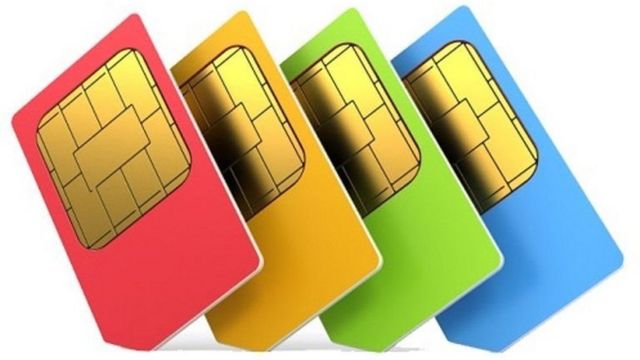Concerns as illegal sales of pre-registered SIMs persist in Kano
Mobile phone users in Kano are increasingly steering clear of pre-registered SIM cards, citing concerns over their legality and associated risks. The sale of such SIMs, which are already registered to another user, is illegal in many jurisdictions due to their potential use in fraudulent activities. Industry experts note that the illegal trade of pre-registered […]

Mobile phone users in Kano are increasingly steering clear of pre-registered SIM cards, citing concerns over their legality and associated risks. The sale of such SIMs, which are already registered to another user, is illegal in many jurisdictions due to their potential use in fraudulent activities.
Industry experts note that the illegal trade of pre-registered SIMs has been a longstanding issue, with some vendors offering them as a convenience to customers who want to bypass registration requirements.
However, authorities have cracked down on the practice, emphasising the risks associated with anonymous SIM usage.
On Thursday, July 25, this reporter posed as a customer at the Farm Centre GSM Market to buy pre-registered SIM cards but found no willing sellers. Vendors at the market insisted they did not engage in the illegal trade.
- Tinubu not taking peace in Niger Delta for granted – Otuaro
- Reps panel threatens to sanction FIRS over failure to honour invitation
Al’ameen Hassan Tsamiya, a SIM card seller working with Airtel, said, “It is a very serious crime, we all know. I try my best to avoid offering pre-registered SIM cards for sale as my shop is an authorised shop. It will be easy for us to be located and dealt with. And Airtel now has an update of sending a user all mobile numbers registered under ‘his/her’ details, so it will be difficult to use someone else’s line. Although some people still do this business discreetly.”
The recent trend of criminals borrowing friends’ mobile numbers to demand ransom has brought attention to the issue of pre-registered SIM cards. Criminals have been found using anonymous SIMs to carry out illicit activities. To make calls appear legitimate, they borrow friends’ phones, putting them at risk.
A SIM card shop owner, who preferred anonymity, recounted how his friend fell victim.
He said, “He (the friend) is not even selling SIM cards. He was just on his own, and then a customer of his, whom he became well-acquainted with, came and asked for his phone to make a quick call. Nobody knew he was a criminal, so he used the phone to ask for ransom. In less than 24 hours, authorities came and took him, claiming his mobile number was used to ask for ransom. He’s still locked up as we speak.”
The use of pre-registered SIM cards has made it easy for criminals to remain anonymous, as they do not require identification or registration to activate. This lack of accountability has contributed to the rise in criminal activities, including ransom demand and other scams.
To combat the issue, authorities are advocating stricter regulations on the sales and use of pre-registered SIM cards. By requiring identification and registration, SIM cards can be traced to their users, making it more difficult for criminals to operate anonymously.
Public awareness campaigns are also being launched to educate individuals about the risks of lending their phones to others and the importance of being cautious when receiving calls from unknown numbers.
As a result, mobile phone users are opting for legitimate channels to buy SIM cards, ensuring they are registered in their own names and adhering to legal requirements. This shift in consumer behaviour reflects a growing awareness of the potential risks tied to pre-registered SIMs, including identity theft and scam.
